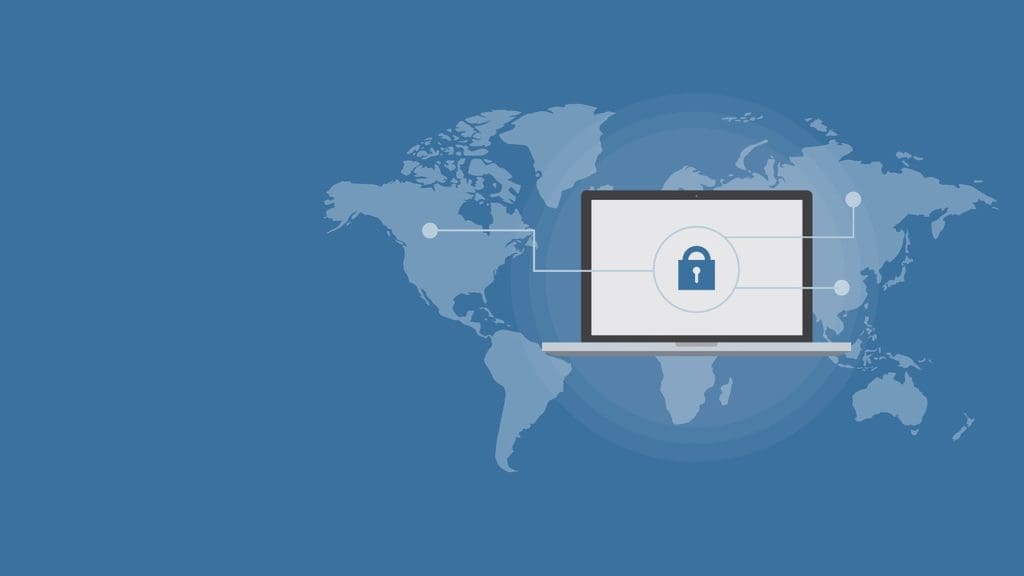 The chances are extremely high that when you travel for business, you carry at least one form of electronic device that is crucial to conducting your business. Governments are increasingly concerned about national security because of encrypted devices being carried by terrorists. Did you know that all countries reserve the right to inspect your data when you enter? Mobile devices are also susceptible to cyber criminals’ nefarious efforts. How can you keep your proprietary data safe while you travel?
The chances are extremely high that when you travel for business, you carry at least one form of electronic device that is crucial to conducting your business. Governments are increasingly concerned about national security because of encrypted devices being carried by terrorists. Did you know that all countries reserve the right to inspect your data when you enter? Mobile devices are also susceptible to cyber criminals’ nefarious efforts. How can you keep your proprietary data safe while you travel?
Travel is Necessary for Business
Although advancements in communication technology offer dependable video conferencing that could cut travel expenses, global companies realize that it just can’t replace all international travel. The benefits of face-to-face meetings and building personal relationships far outweigh any cost. In fact, the Global Business Travel Association (GBTA) predicts continued growth in international business travel through 2022.
Data Security is Imperative
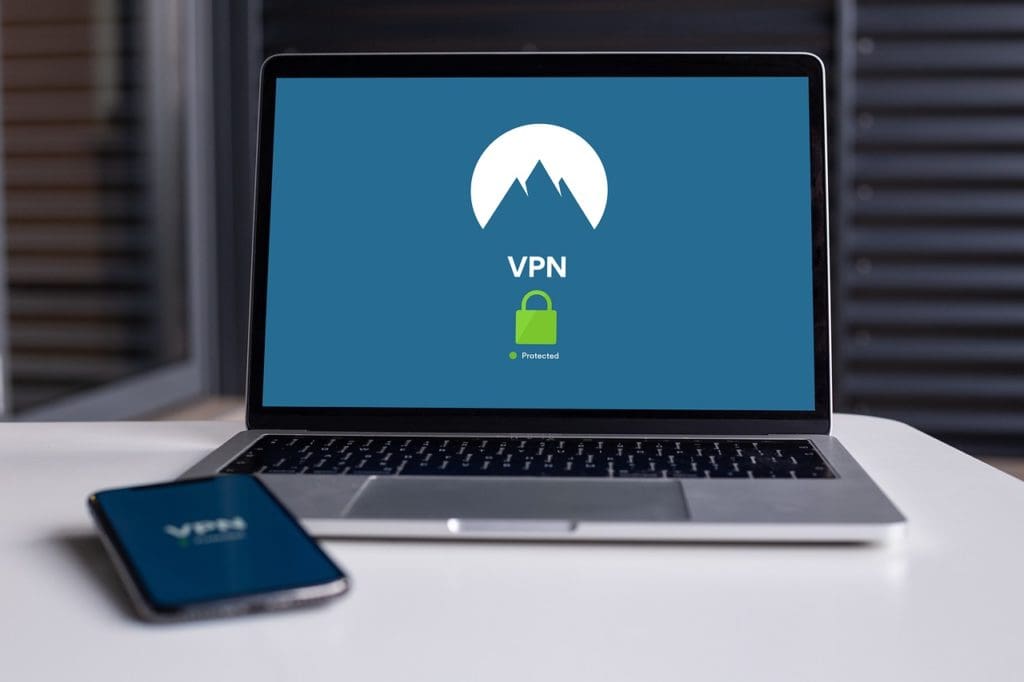 Since international travel is a necessity for doing business, companies and travelers need to mitigate the significant risk of information stored on electronic devices, or the devices themselves, being stolen. Consequences of not keeping your data secure can be far-reaching.
Since international travel is a necessity for doing business, companies and travelers need to mitigate the significant risk of information stored on electronic devices, or the devices themselves, being stolen. Consequences of not keeping your data secure can be far-reaching.
The US National Cyber Security Alliance found that 60 percent of small companies are unable to sustain their businesses over six months following a cyber-related attack. For middle market companies, the average price of dealing with the aftermath of a cyber-attack is over $1 million.
Recommendations to Enhance Data Security
- Take ‘clean’ equipment when possible. Many companies offer a ‘clean’ laptop loaded with only the information necessary for that trip. You can access sensitive information using an internet Virtual Private Network (VPN) at your destination, then delete it before returning.
- Organizations need clear policies on encryption. University researchers, in particular, can be subject to suspicion as they conduct research abroad.
- Travelers need to understand the rules of entering a country with an encrypted device. If you do, carry a statement on letterhead (in the local language is a plus) that your equipment uses commercial encryption software and that the information is normal business information. The document may be helpful if you are questioned at a border.
- Use strong, complex password layers and a two-stage authentication process for both company and personal devices.
- Disable Bluetooth, Wi-Fi, and file sharing when not in use.
- Do not allow others to connect a USB to your equipment, especially a laptop or phone. Never use a USB drive or software received as gifts or promotional items until they have been verified by your IT department. Do not use a USB charger kiosk – charge via a standard electrical outlet instead..
- Back up important data that will travel with you.
- Do not leave devices unattended. Even hotel safes are not always secure.
Use these tips to improve your data security while you travel. For business travel reservations, contact your Covington travel consultant.


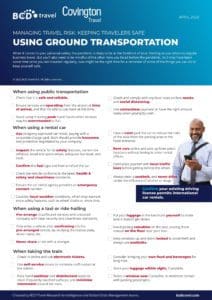
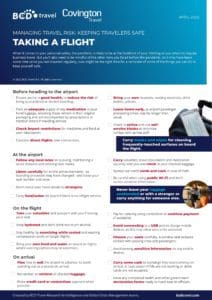
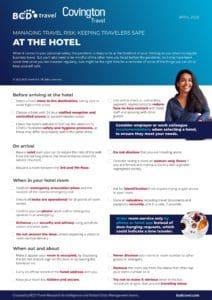
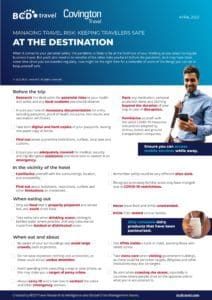
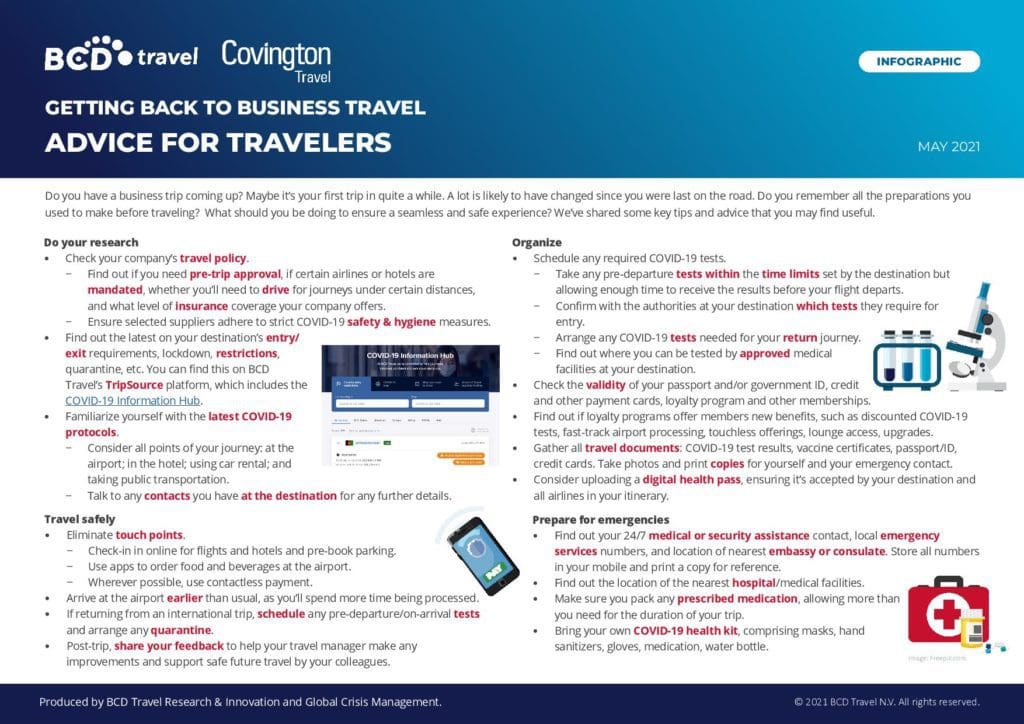
Leave a Reply